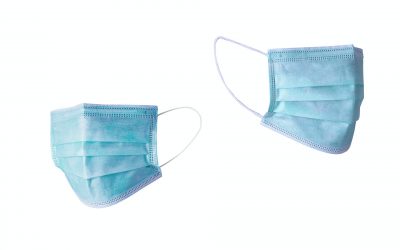ETHICS & PRIVACY
The ASPREE project undertakes multiple ethical review processes and complies with stringent frameworks to protect the wellbeing and privacy of our participants.
ETHICS
The primary role of an ethics committee is to protect the welfare and rights of research participants. In Australia, Human Research Ethics Committees (HRECs) are generally comprised of people with and without a health research background who, as a group, will only approve research if it is conducted with integrity and respects the rights and welfare of participants.
ASPREE and ASPREE-XT collaborate with multiple universities, health care services and thousands of GPs in Australia, requiring review and approval by multiple HRECs.
ASPREE and ASPREE-XT have been ethically reviewed and approved, with study progress monitored in accordance with the Australian Government’s National Health and Medical Research Council’s (NHMRC) National Statement on Ethical Conduct in Human Research (2007). In addition, the project has been designed, and is conducted, in accordance with the Australian Code for the Responsible Conduct of Research (2007). This means that our work must have research merit and be conducted with integrity, justice, beneficence and respect. The project must also comply with state-based Privacy Acts, such as the Victorian Privacy and Data Protection Act 2014 and the Victorian Health Records Act 2001.
We provide regular ongoing reports to the multiple HRECs overseeing the project. These reports describe study progress, participant safety, data security, complaints and any other issues of ethical relevance.
PRIVACY
Participant privacy is protected in a number of ways:
- All participants are allocated an ID number in place of personal information such as name and address.
- Information we collect is entered into a highly secure database. Access to the database is only made available to registered study staff via a password-protected and secure login.
- Data held at the ASPREE locations is locked within a secure environment both physically (paper files) and electronically.
- Data collection, storage and management is centralised at the ASPREE National Co-ordinating Centre in Melbourne, allowing us to track the location of files at any time.
- Our staff have been trained and understand the importance of confidentiality and privacy protection. All staff signed confidentiality agreements as part of their employment for the project.
FAQs
Which HRECs have ethical oversight of ASPREE or ASPREE-XT?
Who to contact about concerns about the project
Where can participants learn more about privacy protection?
HRECs with ethical oversight of the ASPREE project
HRECs that have overseen the ethical conduct of the ASPREE clinical trial and sub-studies, and/or currently oversee ASPREE-XT study activity include:
- Monash University
- Alfred Hospital
- Royal Australian College of General Practitioners (RACGP)
- ACT Health
- Australian National University
- University of Adelaide
- University of Tasmania
- Barwon Health
- St John of God (Bendigo & Warrnambool)
- South West Healthcare
- University of Wollongong
Who to contact
We are always happy to discuss any concerns about the project and can be contacted on 1800 728 745 (toll free from a landline) for a confidential discussion. Participants with ethical concerns or queries can speak to a senior member of the ASPREE team, or contact ethics committees listed in their ASPREE and ASPREE-XT Participant Information and Consent Forms.
Participant questions about privacy protection
FAQs about privacy protection are listed here. Feel free to ring 1800 728 745 (toll free from a landline) if you would rather speak to a member of our team about privacy.
Page updated: 1 March 2021
NEWs
Aspirin and major gastrointestinal bleeding risk
A closer analysis of data from the ASPREE trial provides doctors, for the first time, with information about how much aspirin may increase the risk of gastrointestinal (GI) bleeding in healthy adults aged 70 and over.
Update: ASPREE-XT study visits and COVID-19
An update for participants on ASPREE-XT study activity and COVID-19 restrictions in Australia. The ASPREE-XT study team continues to adapt study visit activity in line with government advice. Study visits may be conducted in-person, or via phone calls, depending on restrictions at the time.
Observational statin study in ASPREE participants
First-line cholesterol-lowering drugs known as statins are associated with fewer heart attacks and strokes, but not associated with a prolonged life free of physical disability or dementia in healthy older adults, an ASPREE analysis shows.







